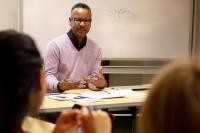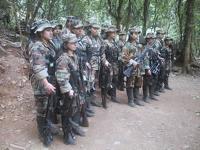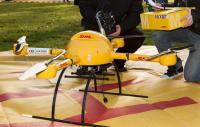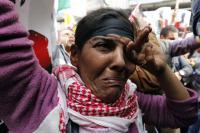-
How did classified information get into those Hillary Clinton e-mails?

FBI director James Comey publicly rebuked Hillary Clinton for being “extremely careless” in handling classified information while she was secretary of state. Were the secretary of state and her aides careless with such information? And how can they maintain that they did not knowingly mishandle classified information? To answer these questions, we need to understand two facts about the classification of information and its transmission. First, the determination of what information is classified is subjective, meaning that reasonable people can disagree about the relative sensitivity of particular information. In fact, different agencies disagree about issues like this all the time. Second, Clinton has not shared classified documents, and this is not something she is accused of. It is extremely difficult to share a classified document electronically over e-mail, because most government agencies, including the State Department, maintain separate systems precisely to make it all but impossible to electronically pass information between classified and unclassified systems. This is partly why Clinton and her aides say so assuredly that they did not knowingly e-mail classified materials. The issue is thus whether she and her aides should have known that matters discussed in e-mails were classified or sensitive.
-
-
A faction of Colombian FARC rebel group rejects peace deal, refuses to disarm

The Armando Rios First Front, a unit of Colombia’s FARC rebel group, has said it will not disarm or demobilize, as it is required to do under the peace deal reached between the FARC and the government of Colombia. The deal, which ends the 52-year guerrilla war between the FARC and successive Colombian governments, was signed in Havana, Cuba, three weeks ago. The announcement by the First Front is the first public sign of opposition to the from within the rebel ranks. Colombian government sources said that other FARC factions could also reject the peace agreement, and that if enough of them did so, it would throw the peace process into doubt.
-
-
10 years after Second Lebanon War, Israel concerned next round will be far worse
On the ten-year anniversary of the beginning of the Second Lebanon War, Israeli officials continued to warn that any future conflict with Hezbollah will result in unprecedented damage to the group. A senior IDF official said that the difference between the next war and 2006 “will be the difference between an operation and a war. 2006 was an operation, and we didn’t use all of our power. Next time it won’t just be planes flying around. … We will use all of our power to destroy Hezbollah militarily.”
-
-
ISIS prepares followers for end of caliphate
In the face of an ever-more-effective campaign by the U.S.-led coalition — a campaign which has substantialy reduced the size of the ISIS-controlled areas in Iraq and Syria; decimated ISIS’s oil-production and distribution infrastructure; killed many senior commanders and operatives; and, with the help of Turkey, choked off the flow of foreign fighters to replenish the organization’s dwindling ranks – ISIS leaders have begun to prepare followers of the Islamist organization for the fall of the ISIS-established caliphate.
-
-
ISIS boasts killing 5,200 people during the month of Ramadan
ISIS has boasted that its Islamist fighters have killed 5,200 people in “military operations” during the holy month of Ramadan. An infographic in the group’s Arabic-language weekly magazine al-Naba, ISIS lists fourteen terrorist attacks group followers carried out in Europe, the United States, Asia, Africa, Syria, and Iraq. ISIS claims the victims include nearly 2,000 Shiites, 1,000 Kurds, 600 Syrian Alawites, and 300 Christians.
-
-
New Border Patrol chief faces uphill battle to reform agency
As the first outsider appointed to run the Border Patrol in its 92-year history, former FBI official Mark Morgan starts his new job this week as chief with a target on his back. The selection of Morgan, a career FBI official, to run the 20,000-strong force sends a clear message: The Border Patrol has a culture problem that needs to be fixed. But with just seven months left in the Obama administration, the question remains whether Morgan can right an agency in turmoil or whether his appointment is merely symbolic.
-
-
How to stay anonymous online

Anonymity networks protect people living under repressive regimes from surveillance of their Internet use. But the recent discovery of vulnerabilities in the most popular of these networks — Tor — has prompted computer scientists to try to come up with more secure anonymity schemes. These scientists have developed a new anonymity scheme that provides strong security guarantees but uses bandwidth much more efficiently than its predecessors, making it possible for network to protect users’ anonymity if all but one of its servers are compromised.
-
-
U.S. terror victims file suit against Facebook for failing to block Palestinian incitement
The families of five Americans recently killed or injured by Palestinian terrorists have filed a lawsuit against Facebook for allowing the terrorist group Hamas to incite violence on its network. The plaintiffs are seeking $1 billion in punitive damages under the Anti-Terrorism Act, which allows American citizens who are victims of overseas terrorist attacks to sue in U.S. federal courts.
-
-
ISIS's finances have been damaged, but U.K. can do more
In their report on ISIS’s finances, MPs on the Foreign Affairs Subcommittee say ISIS faces an increasingly desperate struggle to raise money. The so-called “richest terrorist group” may have generated more money than any other terrorist organizations but it also incurs unprecedented costs.
-
-
Banning Muslim face veil at the work place not discriminatory: Austria’s Supreme Court
Rejecting employees’ requests to wear a veil at work is not discriminating against them, Austria’s highest courts has ruled. In the landmark decision, Austria’s Supreme Court (OGH) ruled that if items of clothing prevent communication, an employer may legally ban them at the work place. The question of whether or not Muslim women should be allowed to wear the Islamic veil at the work place or public schools – or even at public — is the subject of intense debate in Europe, and many states have legislated against it.
-
-
Your smart watch and fitness tracker may give away your PIN
Wearable devices — Fitbits, Jawbones, Nike+, Apple Watches, and the like — are white-hot. The tech segment is already producing an estimated $14 billion in sales worldwide, and expected to more than double within four years, climbing to north of $30 billion. But a new research report reveals those cool wearables just may leak information as you use them.
-
-
ISIS using drones with explosives, spy cameras: Pentagon

The Pentagon says that ISIS fighters are have been posing a growing threat to U.S. and Iraqi forces by using small commercial drones to carry improvised explosives devices (IEDs) or surveillance cameras. These drones are especially threatening because they can evade detection. The growing threat led the Joint Improvised-Threat Defeat Agency, the Pentagon’s office charged with keeping tab on and countering IEDs, to ask Congress for permission to reallocate $20 million to provide money for a counter-drone program.
-
-
ISIS caliphate shrinks a further 12 percent in 2016

Territory controlled by ISIS shrunk by 12 percent in the first six months of 2016. In 2015 the ISIS caliphate shrunk by 12,800 km2 to 78,000 km2, a net loss of 14 percent. In the first six months of 2016, that territory shrunk again by 12 percent. As of 4 July 2016, ISIS controls roughly 68,300 km2 in Iraq and Syria, which is roughly the size of Ireland or West Virginia.
-
-
ISIS uses Whatsapp, Telegram to sell girls and women as sex slaves

ISIS has been using instant messenger apps Whatsapp and Telegram to advertise Yazidi women and girls as young as 12 for sale as sex slaves. These apps are also being used to share photos databases of women held by ISIS as sex slaves. ISIS uses the apps to distribute these of photographs to ISIS militants manning the group’s checkpoints so that these women can be identified if they try to escape ISIS-controlled territory. Telegram and Facebook-owned Whatsapp both use end-to-end encryption, preventing the two companies from accessing users’ communications.
-
-
Feds tight-lipped on weeding out corrupt border agents
In a video message intended for the tens of thousands of men and women working to keep drugs and people from illegally entering the United States, then-Deputy Border Patrol Chief Ron Colburn wanted to leave little doubt about the consequences for those who betrayed their mission. But whether most — or even a significant fraction of — corrupt federal border agents really are caught and punished is an open question.
-
More headlines
The long view
What Does Netflix’s Drama “Adolescence” Tell Us About Incels and the Manosphere?
While Netflix’s psychological crime drama ‘Adolescence’ is a work of fiction, its themes offer insight into the very real and troubling rise of the incel and manosphere culture online.
A Shining Star in a Contentious Legacy: Could Marty Makary Be the Saving Grace of a Divisive Presidency?
While much of the Trump administration has sparked controversy, the FDA’s consumer-first reforms may be remembered as its brightest legacy. From AI-driven drug reviews to bans on artificial dyes, the FDA’s agenda resonates with the public in ways few Trump-era policies have.
The Center Can Hold — States’ Rights and Local Privilege in a Climate of Federal Overreach
As American institutions weather the storms of executive disruption, legal ambiguity, and polarized governance, we must reexamine what it means for “the center” to hold.
How to Reverse Nation’s Declining Birth Rate
Health experts urge policies that buoy families: lower living costs, affordable childcare, help for older parents who want more kids
Foundation for U.S. Breakthroughs Feels Shakier to Researchers
With each dollar of its grants, the National Institutes of Health —the world’s largest funder of biomedical research —generates, on average, $2.56 worth of economic activity across all 50 states. NIH grants also support more than 400,000 U.S. jobs, and have been a central force in establishing the country’s dominance in medical research. Waves of funding cuts and grant terminations under the second Trump administration are a threat to the U.S. status as driver of scientific progress, and to the nation’s economy.
The True Cost of Abandoning Science
“We now face a choice: to remain at the vanguard of scientific inquiry through sound investment, or to cede our leadership and watch others answer the big questions that have confounded humanity for millennia —and reap the rewards.”
